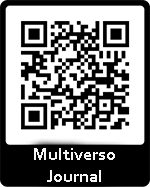From the philosophy of language to the political philosophy of the 21st century
DOI:
https://doi.org/10.46502/issn.2792-3681/2023.4.3Keywords:
political philosophy; philosophy of language; forms of government; Latin American history; political constitution of Ecuador.Abstract
The aim of this research article is to reflect on the transition from the philosophy of language to the political philosophy of the 21st century. For this purpose, a qualitative design with a descriptive scope is used, and it is also documentary research. It is necessary to raise these considerations dedicated to the study of language as inherent to man, in the understanding of man as referring to the human species and politics, as dedicated to establishing an honest and equitable society for each member and member of the same, as well as the political philosophy observed in the national Constitution of 2008. The conclusion that stands out is that in every era philosophy is committed to protect the existing forms of government or propose a change, in search of a better society, in Ecuador must keep in mind the sumak kawsay, as it enacts seeks to balance man and nature, in discordance with the vision of only taking care of the environment and nature, as necessary for humanity and not by right, as it deserves; likewise, a definition of the term philosophy is proposed.
References
Arispe Alburqueque, C., Yangali Vicente, J., Guerrero Bejarano, M., Lozada de Bonilla, O., Acuña Gamboa, L., & Arellano Sacramento, C. (2020). La investigación científica. Una aproximación para los estudios de posgrado. Guayaquil: Universidad Internacional del Ecuador.
Asamblea Nacional Constituyente. (2008). Constitución de la República del Ecuador. Montecristi: S.O. Nº449.
Bentolila, H. R. (2018). Importancia del lenguaje y del método filosófico en el segundo Wittgenstein. Revista Colombiana de Filosofía de la Ciencia, 18(36), 89-102.
Beuchot, M. (2022). Historia de la filosofía del lenguaje. Ciudad de México, México: Fondo de Cultura Económica.
Beuchot, M. (2011). Manual de Filosofía. México D.F, México: Ediciones San Pablo.
Cabezas, E., Andrade, D., & Torres, J. (2018). Introducción a la metodología de la investigación científica (Primera ed.). Sangolquí, Ecuador: Universidad de las Fuerzas Armadas ESPE.
Collado, J., Falconí, F., & Malo, A. (2020). Educación ambiental y praxis intercultural desde la filosofía ancestral del Sumak Kawsay. Utopía y Praxis Latinoamericana (90), 120-135.
Cortés, M., & Leon, M. (2004). Generalidades sobre Metodología de la Investigación. Del Carmen, Campeche, México: Universidad Autónoma del Carmen.
Cruz, G. (2021). El proyecto filosófico de Ludwig Wittgenstein como resolución a los mal entendidos del lenguaje planteados por la filosofía tradicional. Rio Piedras, Puerto Rico: Universidad de Puerto Rico.
Frolov, I. T. (1984). Diccionario de filosofía. (O. Razinkov, Trad.) Moscú, URSS: Progreso.
Granda-Torres, G. A. (2020). Enfoque filosófico presente en la Constitución del Ecuador de 2008 breves comentarios analíticos. Polo del Conocimiento, 5(2), 333-344.
Jiménez, C. (2020). Wittgenstein: Lenguaje, Acción y Filosofía Política. Bogotá, Colombia: Universidad Santo Tomas.
Sánchez Benítez, R. (2020). Voltaire y Rousseau: pormenores de una rivalidad sobre el mal y la providencia. Protrepsis, (18), 25-43.
Tamayo, M. (2003). El proceso de la investigación científica (Cuarta ed.). México DF, México: Limusa.
Terán Dutari, J. (2022). Conocimiento y tradición metafísica. Ecuador: Pontificia Universidad Católica del Ecuador.
Vargas Villabona, C. F. (2019). El siglo XXI y la crisis de la filosofía: un compromiso con la inconsistencia. Expresiones, Revista Estudiantil de Investigación, 6(11), 21-28.
Published
How to Cite
Issue
Section
License
Copyright (c) 2023 Luis Felipe Nagua-Jiménez, Douglas Xavier Moreno-Morán, Germania Lorena Jumbo-Balcázar

This work is licensed under a Creative Commons Attribution 4.0 International License.
The authors who publish in this journal agree to the following terms:
The authors retain copyright and guarantee the journal the right to be the first publication where the article is presented, which is published under a Creative Commons Attribution License, which allows others to share the work prior to acknowledgment of the authorship of the article. work and initial publication in this journal.
Authors may separately enter into additional agreements for non-exclusive distribution of the version of the work published in the journal (for example, placing it in an institutional repository or publishing it in a book), with an acknowledgment of its initial publication in this journal.



















